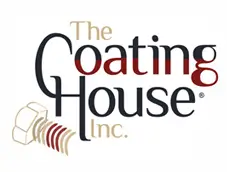The right fasteners make all the difference in product designs and assemblies for producing a secure and dependable hold. Since 1980, The Coating House Inc. has supplied clients across diverse industries with high-performance coated and uncoated fasteners and fittings to enhance reliability while saving on assembly costs. Among our industrial offerings are a selection of cap screws to fit the needs of varied applications. Learn about the unique advantages of each type of cap screw to assist you in placing your order.
What Is a Cap Screw?
This screw variety typically features internal and external socket drive heads with varying profiles depending on the type. Under the head of a cap screw is a fully or partially threaded shaft with a chamfered tip. Most commonly used in machinery, automotive, and industrial manufacturing applications, cap screws offer high-yield strength and durability in the field.
Types of Cap Screws
Available in many forms, cap screws are distinguished by head, material, drive, and strength. Here are the most common types of cap screws.
Hex Head Cap Screws
The hex head cap screw features a six-sided head for enhanced assembly and torque application. The hexagonal design allows for tightening with basic sockets, boxes, and combination wrenches. Hex head cap screws have a flat bearing surface under the head that flexes while being tightened, helping to protect its elasticity. Fully threaded, hex head cap screws are usually graded based on material, strength, and dimension. Available in stainless or alloy steel, these fasteners are designed to meet ASTM A449 and SAE J429 grades 2, 5, and 8.
Socket Head Cap Screws
The socket head cap screw (SHCS) is the most recognized type of cap screw. Using hex sockets or Allen keys as a driver, socket head cap screws’ internal hex drive allows for assembly in very tight spaces with minimal risk of stripping. Available with a regular or low-profile head, socket head cap screws are recognized as the strongest option when a nut and bolt cannot be used. Designed to meet ASME B18.3, alloy and stainless steel SHCSs are hardened for maximum performance.
Button Head Cap Screws
The defining feature of a button head cap screw is its round raised dome with an internal hex drive socket. The wide load-bearing surface provides greater torque capability and, in turn, provides greater clamping force. The round look is popular for aesthetic purposes, while the lack of sharp edges offers a measure of safety. Button head cap screws meet ASME B18.3 specifications and are also available with a 6-lobe (Torx) drive.
Flat Head Cap Screws
The flat head cap screw (FHCS), also known as a countersunk cap screw, offers an 82° (Imperial) and 90° (Metric) shoulder designed to sit flush with the mating surface. Ideal for precision applications that prioritize aesthetics and aerodynamics, flat head cap screws lack protrusion to prevent drag and conditional loosening. Available in zinc or black alloy and stainless steel, FHCSs come with either an internal hex or a 6-lobe drive. Flat head cap screws are commonly used in exterior applications.
Socket Set Screws
A socket set screw is used to secure components in place. The screw works by passing through a threaded hole in one component and butting up tightly against the surface of a jointed secondary component. Available in alloy or stainless, set screws are distinguished by the many different types of tips. The most popular tips include cone, cup, knurled, dog point, soft tip, and ballpoint. Set screws are commonly used in automation where a pulley is mounted to a drive shaft.
Shoulder Screws
A shoulder screw is comprised of a head, thread, and shoulder. When fully threaded, the shoulder can serve as the dowel or shaft for bushings, bearings, and other rotating components; sliding element guides; rolling component axles; or mounting pins or pivot points. These screws are first defined by the diameter of their shoulder and secondly by the shoulder’s length. Available with a plain or black oxide finish, shoulder screws are designed to meet ASME B18.3 specifications. The Coating House offers a variety of custom-sized shoulder screws.
Cap Screw Uses & Applications
Cap screws are ideal for structural and machinery applications due to their durable strength, load-handling capacity, and ability to withstand vibration. You can use cap screws together with nuts or in threaded holds to tightly bind two surfaces together. The screws stretch as you apply tensile load, and then they clamp tightly to produce a secure hold with a strong grip.
You’ll commonly find these screws in the following sectors:
- Aerospace
- Automotive
- Construction
- Electronics
- Industrial machinery
Where to Buy Cap Screws
Whether the screw head design is flush with a surface to prevent catching or drag, rounded for an aesthetically appealing look, or ruggedly cylindrical for easy handling, cap screw bolts enable a tight grip between components. At The Coating House, we specialize in supplying standard and custom fasteners like high-quality cap screws to minimize component failure and operational downtime.
Our extensive product offerings are available in multiple colors, materials, and styles to handle varying loads and thermal conditions. Contact us today to learn more about our inventory, special order capabilities, and rapid turn times.

